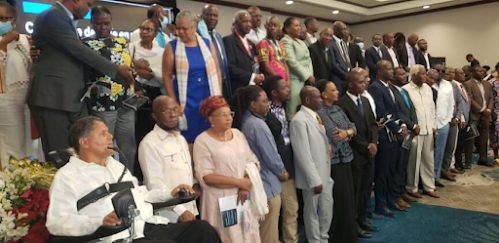“The Caribbean Solidarity Network Rejects Calls for Canadian Intervention in Haiti ”

“The Caribbean Solidarity Network Rejects Calls for Canadian Intervention in Haiti ” For Immediate Release Media contact: caribbeansolidarity@gmail.com October 19 - 2022 (Toronto) On October 16, 2022, the Canadian military sent “security equipment” to Haiti, consisting of tactical and armored vehicles to the Haitian National Police, as the first step of what will become a broader multi-national intervention in the country. While falsely portrayed as “humanitarian intervention”, the Caribbean Solidarity Network stands in direct opposition to this latest Canadian imperial intervention in Haiti, as it undermines Haitian self-determination and props up the illegitimate, criminal, puppet government of Ariel Henry. Media coverage repeatedly conveys the story of shortages, hardship and violence due to the unchecked power of gangs. While the hardships facing Haitians are real, they must be reported within the wider context of both recent and historical realities. The primary reasons for Hait

